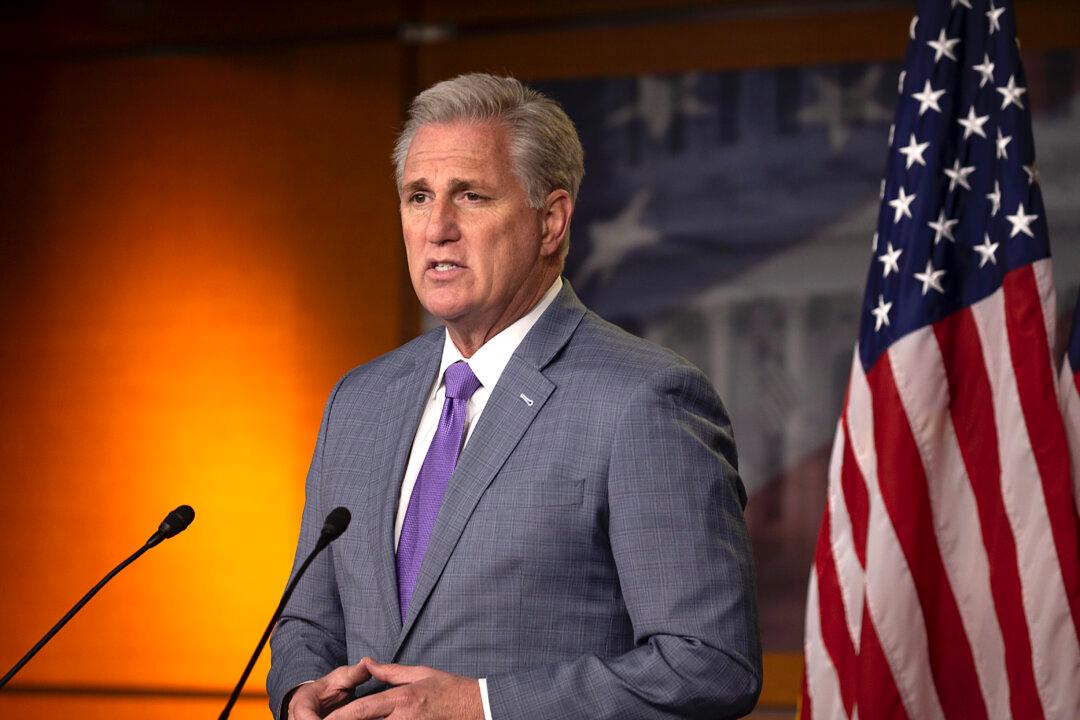Ahead of a late-night vote that saw the $1.9 trillion pandemic relief package adopted, House Minority Leader Kevin McCarthy (R-Calif.) criticized the bill for its bevy of non-COVID-19-related spending, alleging it caters to “special interest allies” and proclaiming that “the swamp is back.”
“I’m about to say something that the American people don’t want to hear—the swamp is back,” McCarthy said on the House floor late Friday.





